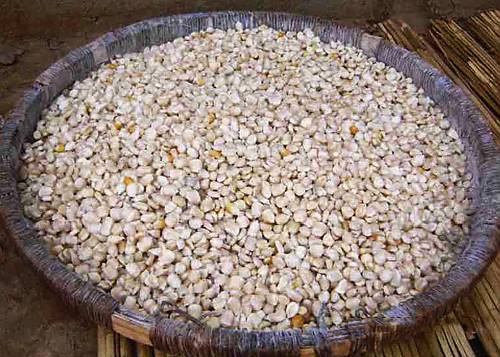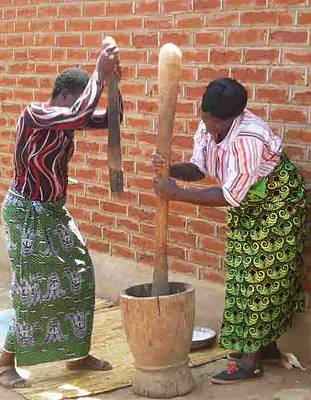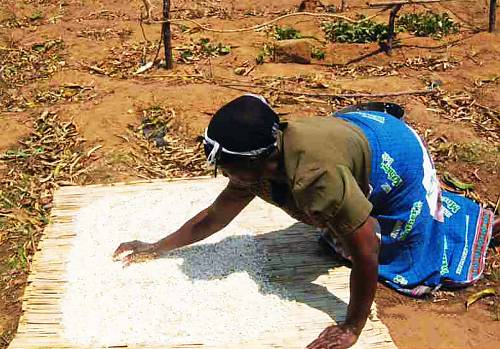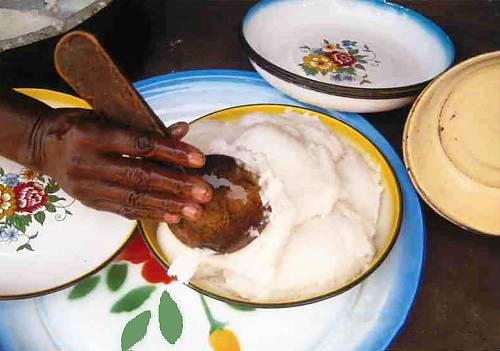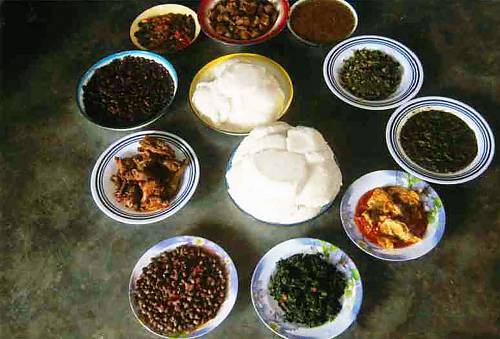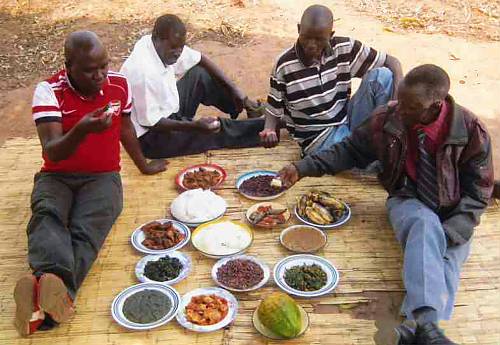Nsima, culinary tradition of Malawi
Inscribed in 2017 (12.COM) on the Representative List of the Intangible Cultural Heritage of Humanity

Nsima, the Culinary Tradition of Malawi, is a compound name for the culinary and dietary tradition of Malawians as well as the name of a single component of this tradition, a form of thick porridge prepared with maize flour. Nsima is prepared through an elaborate process requiring specific knowledge, from pounding the maize into flour to selecting the accompanying food and then preparing and serving it. Certain customs are followed during mealtimes, for example to regulate gluttony and promote cleanliness and cohesion. The process of growing, storing, processing and preparing the maize from which Nsima is made is bound up with Malawians’ way of life, and eating Nsima is a communal tradition in families and an opportunity to strengthen bonds. At an early age, girls learn to pound maize or sift flour to prepare Nsima, while young boys hunt for animals to provide accompaniments. Communities ensure the safeguarding of the element through continued practice, the publication of schoolbooks and recipes on Nsima, the organization of festivals and the revitalization of the practice. Most restaurants in Malawi also feature Nsima on their menus. Knowledge relating to the element is transmitted informally between adults and children, and through on-the-job training and education.
